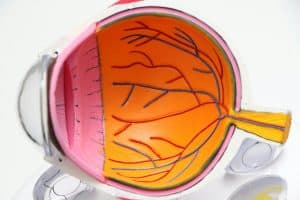Regular eye exams are crucial because they help identify potential vision problems early on. By catching issues early, you can take steps to treat them before they worsen. Beyond checking your vision, eye exams are essential to overall health maintenance, often revealing other health issues like diabetes and hypertension. For instance, during a routine check-up, your optometrist might notice signs of high blood pressure or even diabetes through the condition of your blood vessels in the retina.

In addition to these health revelations, those who suffer from frequent eye irritation or discomfort may benefit from discussing advanced dry eye therapy with their eye care provider. This specialized therapy can significantly alleviate symptoms and improve the quality of life for people dealing with chronic dry eye conditions.
How Often Should You Get an Eye Exam?
Eye exams can vary depending on age, risk factors, and whether glasses or contact lenses are worn. It is advised that adults undergo an eye checkup every two years to identify any changes in their eyesight early on. Annual check-ups are recommended if there are pre-existing conditions or a family history of eye problems. Children should have their first comprehensive eye exam at six months old, another at three years old, and another before starting first grade. School-aged children should have an eye exam every two years unless they wear glasses or contact lenses. Having timely eye exams can help detect vision problems affecting learning and development.
What Happens During an Eye Exam?
An optometrist will conduct a battery of tests called an eye exam to assess your vision and health. These tests include visual acuity tests, refraction assessments, slit-lamp examinations, and eye pressure tests to check for glaucoma. Advanced tests use technology to capture detailed images of the eyes, enabling the optometrist to detect minor changes. A retinal examination may also be included to identify signs of macular degeneration or diabetic retinopathy. These tests are crucial for ensuring proper eye care and preventing blindness.
Early Detection of Eye Diseases
Better long-term results and vision preservation can result from early detection and treatment of eye disorders like cataracts, macular degeneration, and glaucoma. Regular eye exams can help identify these diseases in their early stages, preventing significant vision loss and slowing their progression. Moreover, early detection of complications from systemic conditions like diabetes can help prevent permanent vision loss and reduce the risk of severe vision impairment.
Lifestyle Tips for Eye Health
A balanced diet high in omega-3 fatty acids, vitamins C and E, and zinc can significantly enhance the health of your eyes. Eating leafy greens, seafood, almonds, and citrus fruits can help prevent age-related macular degeneration and cataract development. Eye strain and exhaustion can be avoided by shielding the eyes from damaging UV rays, donning sunglasses, reducing screen time, and taking breaks from digital gadgets. Giving up smoking can also lower the risk of developing cataracts and macular degeneration.
Conclusion
Regular eye exams are essential to maintaining eye health and overall wellness. They help detect eye diseases and other health conditions early, allowing for proactive management. Following recommended exam schedules and incorporating healthy lifestyle habits can preserve your vision and enhance your quality of life. Ensuring that you stay committed to these practices will protect your eyesight and contribute to your overall well-being. Pay attention to the significance of routine eye exams in protecting our vision, one of our most valuable senses.
